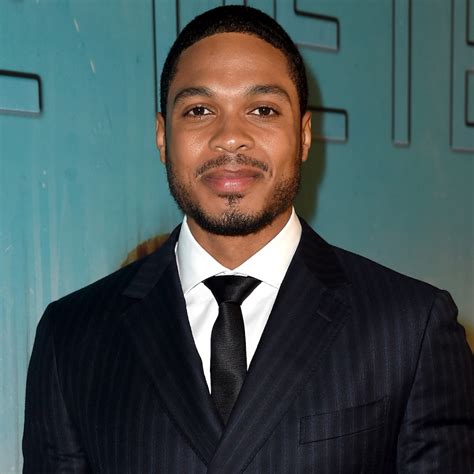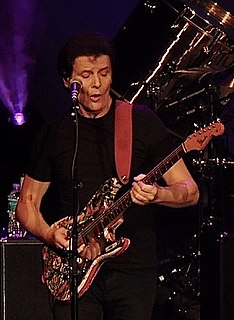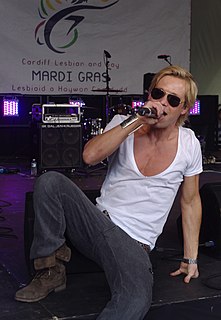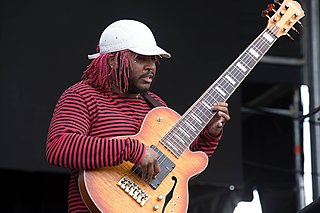A Quote by Ray Fisher
Those early Cyborg comics were very politically charged, and he was very aware of being a black superhero.
Related Quotes
We were a very politically active family. My father was one of the first lawyers in South Africa to have a black partner, so I grew up very aware of the struggle going on. Coming from that background, it really gave me chills to have my music be a part of the election of the first black American president.
There was a long time in my professional life that I was not happy, and there was nothing anyone else could have done to make me happy. There was a big stretch where I was very sick, and I was very hurt. Those charged with taking care of my health and well-being weren't very good at their jobs. Or maybe they were too good at their jobs.
Cyborg represents not just people who are differently abled: he is also a representation of the black community and people of colour within the Justice League. Being able to don both those mantles with the integrity which that character would need to be portrayed and was adhered to was something that was very important.
There are a lot of good comics, no doubt, but as far as the quality of the comics goes, I think what you have is a bunch of situational comics - there are black comics that work only black crowds, gay comics that do only gay crowds, and southern comics that only work down South, and so on with Asian, Latino, Indian, midgets, etc. The previous generation's comics were better because they had to make everybody laugh.
The early 2000s for me were a very emotional time, politically. I'd been through Reagan and been through first Bush and Clinton, and it's not like I had an easy time through those years. But I just thought it was particularly rough. I have to say the World Trade Center attack was very weird for me. The events that followed were worse. It was a really long swath of time.
In the thirties a whole school of criticism bogged down intellectually in those agitprop, social-realistic days. A play had to be progressive. A number of plays by playwrights who were thought very highly of then - they were very bad playwrights - were highly praised because their themes were intellectually and politically proper. This intellectual morass is very dangerous, it seems to me. A form of censorship.
I see nothing easy in Washington. I see either analytically simple things that are politically complex or those that are politically complex and analytically complex. I mean, look at immigration reform, you know? It is, I think, analytically easy, but politically very, very complex and very difficult.
































